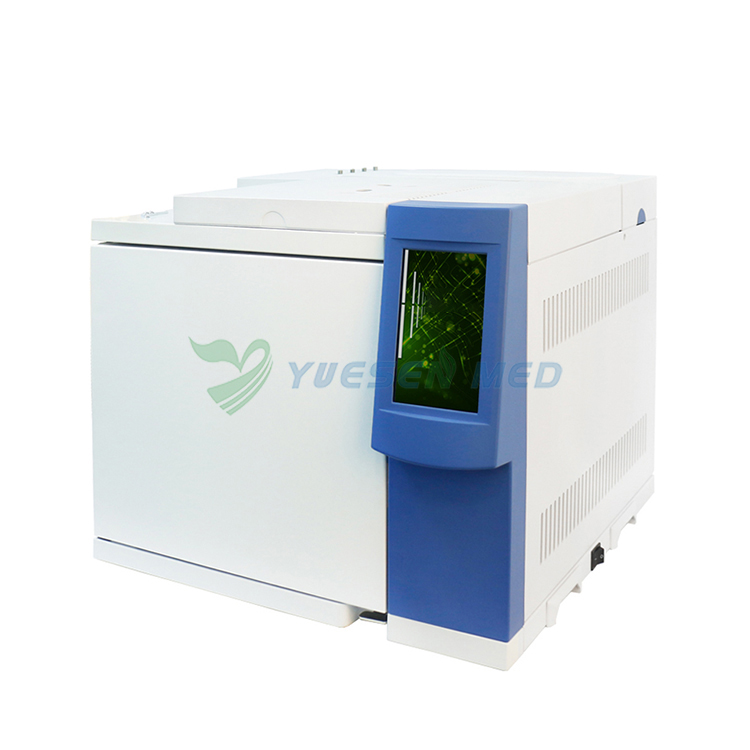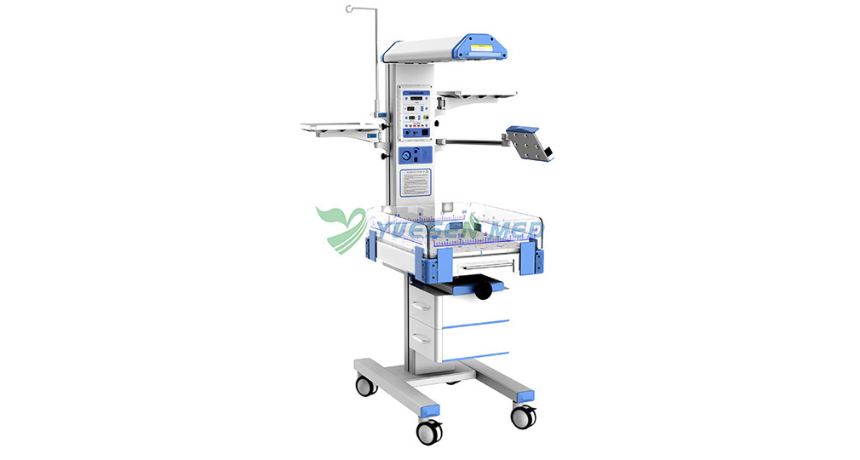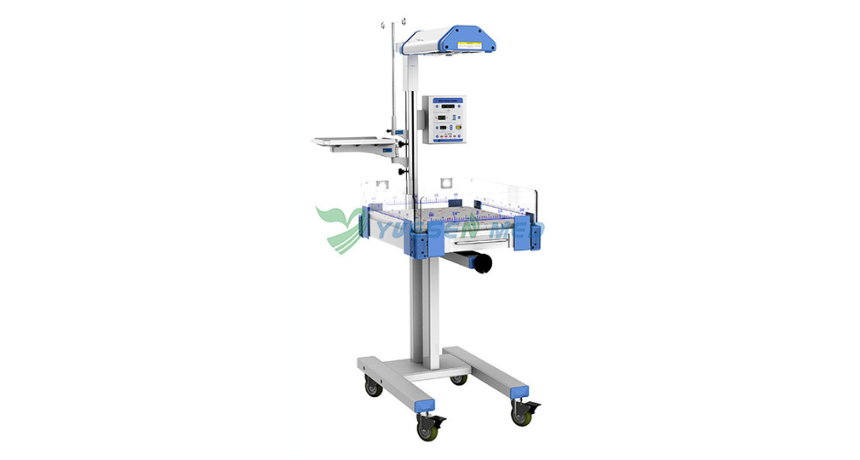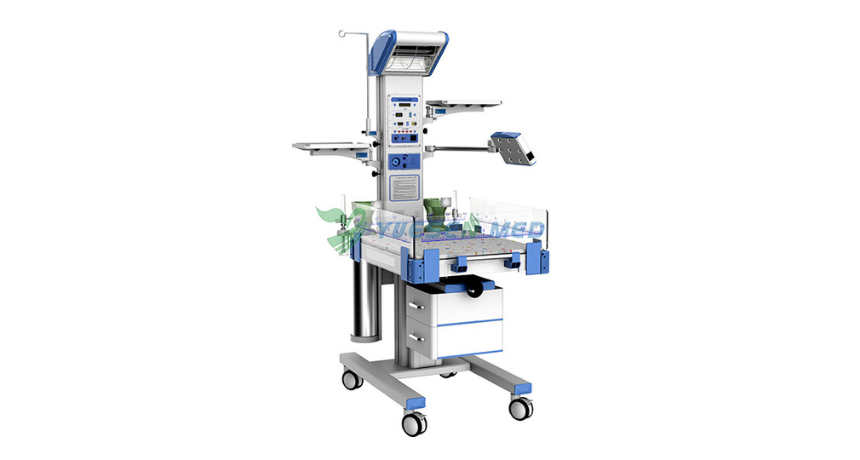Hot Products
YSX500D 50kW DR system set up and put into service in Cambodia.
YSENMED YSX500D 50kW digital x-ray system has been successfully set up and put into service in a hospital in Cambodia.
YSX056-PE serving as a vehicle-mounted x-ray in the Philippines
YSX056-PE 5.6kW portable x-ray unit has been adapted to fit on a truck, to provide mobile x-ray examination service for remote communities in the Philippines.
X Ray Machine To Zimbabwe
x ray machine, 50KW x ray machine
Microscope To Malawi
Achromatic objectives: 4X、10X、40X(S), 100X(S、Oil) Wide field eyepiece: WF10X(WF16X for option) Eyepiece head: Sliding binocular head inclined at 45° Stage: Double layer mechanical stage size 140X140mm, moving range 75X45mm Focusing: Coaxial coarse and
Why a Gas Chromatography Analyzer is Essential for Your Lab
Views : 979
Update time : 2024-11-15 10:51:00
When it comes to analytical chemistry, having the right tools can make all the difference. One of the unsung heroes in many labs is the gas chromatography analyzer. You might be wondering, "Why should I care about this piece of equipment?" Well, let's dive into the nitty-gritty of why a gas chromatography analyzer is not just a luxury but a necessity for your lab.

What is Gas Chromatography?
Before we get into the why, let's chat a bit about what gas chromatography (GC) actually is. In simple terms, it's a technique used to separate and analyze compounds that can be vaporized without decomposition. Think of it as a sophisticated sorting hat for molecules—separating them based on their size, boiling point, and other chemical properties.
The Basics of How It Works
So, how does this magical machine work? Here's a brief rundown:
1. Sample Injection: You start by injecting a small amount of your sample into the chromatograph.
2. Vaporization: The sample is then vaporized in a heated chamber.
3. Separation: As the vapor travels through a column, it separates into its individual components.
4. Detection: Finally, a detector measures the amount of each component, giving you a readout of what's in your sample.
Why Use a Gas Chromatography Analyzer?
Precision and Accuracy
One of the biggest advantages of using a gas chromatography analyzer is its precision. When you're working with minute quantities of substances, even a tiny error can lead to skewed results. GC minimizes this risk, allowing you to trust your data.
Versatility
From environmental testing to food safety, gas chromatography can be applied in various fields. Whether you're analyzing volatile organic compounds in air samples or checking for contaminants in food, GC has got you covered.
Speed of Analysis
In today's fast-paced world, time is money. Gas chromatography offers rapid analysis times, often providing results in minutes rather than hours. This efficiency can significantly speed up your research and development processes.
High Sensitivity
Gas chromatography analyzers are incredibly sensitive. They can detect compounds at very low concentrations, making them ideal for applications where trace analysis is crucial, such as in forensic science or pharmaceuticals.
Comprehensive Data
With GC, you're not just getting a yes or no answer. You're receiving a wealth of information about the composition of your sample. This detailed data can be invaluable for research and quality control.
Applications of Gas Chromatography
Environmental Testing
In environmental labs, GC is used to analyze air, water, and soil samples for pollutants. This helps in assessing environmental health and compliance with regulations.
Food and Beverage Industry
From quality control to safety testing, gas chromatography plays a vital role in the food industry. It can detect additives, contaminants, and even flavor compounds, ensuring that what you consume is safe and of high quality.
Pharmaceutical Analysis
In the pharmaceutical industry, GC is essential for analyzing active ingredients, impurities, and degradation products. This ensures that medications are both safe and effective.
Forensic Science
Forensic labs rely on gas chromatography to analyze substances found at crime scenes. Whether it's identifying drugs or analyzing residues, GC provides critical evidence that can make or break a case.
Petrochemical Industry
In the oil and gas sector, GC is used to analyze crude oil and natural gas samples. This helps in determining the composition and quality of these resources.
Choosing the Right Gas Chromatography Analyzer
Consider Your Needs
When selecting a gas chromatography analyzer, think about what you'll be using it for. Different models come with varying features tailored to specific applications.
Budgeting
Quality equipment can be a significant investment. However, consider it a long-term investment in your lab's capabilities. A good GC can save you time and money in the long run.
Maintenance and Support
Like any piece of equipment, gas chromatography analyzers require maintenance. Choose a model that comes with good support and service options to ensure longevity and reliability.
Training and Expertise
Staff Training
Having the right equipment is only half the battle; you also need skilled personnel to operate it. Investing in training for your staff can maximize the potential of your gas chromatography analyzer.
Staying Updated
The world of analytical chemistry is always evolving. Keep your team updated on the latest techniques and technologies related to gas chromatography to stay ahead of the curve.
Conclusion
In conclusion, a gas chromatography analyzer is not just another piece of lab equipment; it's an essential tool that can elevate your research and analysis capabilities. With its precision, versatility, and speed, it opens up a world of possibilities across various industries. Whether you're testing environmental samples, ensuring food safety, or conducting forensic analyses, having a GC analyzer in your lab can make all the difference. So, if you're still on the fence about investing in one, remember: the right tools can transform your lab from good to great. Are you ready to take your lab to the next level?
FAQ
What types of samples can be analyzed using a gas chromatography analyzer?
Gas chromatography can analyze a wide range of samples, including gases, liquids, and volatile solids. Common applications include environmental samples (like air and water), food products (for contaminants or flavor compounds), and chemical mixtures in pharmaceuticals and petrochemicals. Essentially, any sample that can be vaporized without decomposing is suitable for GC analysis.
How does gas chromatography differ from other analytical techniques?
Gas chromatography primarily focuses on separating and analyzing volatile compounds, whereas other techniques like liquid chromatography (LC) are better suited for non-volatile substances. GC is known for its high sensitivity and speed, making it ideal for applications requiring rapid results. Additionally, GC typically offers better resolution for complex mixtures compared to many other methods.
What are the key components of a gas chromatography system?
A typical gas chromatography system consists of several key components: a sample injector, a column for separation, a carrier gas (usually helium or nitrogen), a detector (such as a flame ionization detector or mass spectrometer), and a data analysis software. Each component plays a crucial role in ensuring accurate and efficient analysis of the sample.
How can I ensure accurate results when using a gas chromatography analyzer?
To achieve accurate results, it’s essential to follow proper sample preparation protocols, calibrate the instrument regularly, and use appropriate standards for comparison. Additionally, maintaining the GC system by cleaning and replacing parts as needed will help minimize errors. Training staff on best practices in operation and data interpretation is also vital for reliable outcomes.
What industries commonly use gas chromatography, and why?
Gas chromatography is widely used in several industries, including pharmaceuticals, food and beverage, environmental monitoring, and petrochemicals. Each of these sectors relies on GC for its ability to provide precise and detailed analysis of complex mixtures, ensuring product safety, regulatory compliance, and quality control. Its versatility makes it an invaluable tool across various scientific and industrial applications.

What is Gas Chromatography?
Before we get into the why, let's chat a bit about what gas chromatography (GC) actually is. In simple terms, it's a technique used to separate and analyze compounds that can be vaporized without decomposition. Think of it as a sophisticated sorting hat for molecules—separating them based on their size, boiling point, and other chemical properties.
The Basics of How It Works
So, how does this magical machine work? Here's a brief rundown:
1. Sample Injection: You start by injecting a small amount of your sample into the chromatograph.
2. Vaporization: The sample is then vaporized in a heated chamber.
3. Separation: As the vapor travels through a column, it separates into its individual components.
4. Detection: Finally, a detector measures the amount of each component, giving you a readout of what's in your sample.
Why Use a Gas Chromatography Analyzer?
Precision and Accuracy
One of the biggest advantages of using a gas chromatography analyzer is its precision. When you're working with minute quantities of substances, even a tiny error can lead to skewed results. GC minimizes this risk, allowing you to trust your data.
Versatility
From environmental testing to food safety, gas chromatography can be applied in various fields. Whether you're analyzing volatile organic compounds in air samples or checking for contaminants in food, GC has got you covered.
Speed of Analysis
In today's fast-paced world, time is money. Gas chromatography offers rapid analysis times, often providing results in minutes rather than hours. This efficiency can significantly speed up your research and development processes.
High Sensitivity
Gas chromatography analyzers are incredibly sensitive. They can detect compounds at very low concentrations, making them ideal for applications where trace analysis is crucial, such as in forensic science or pharmaceuticals.
Comprehensive Data
With GC, you're not just getting a yes or no answer. You're receiving a wealth of information about the composition of your sample. This detailed data can be invaluable for research and quality control.
Applications of Gas Chromatography
Environmental Testing
In environmental labs, GC is used to analyze air, water, and soil samples for pollutants. This helps in assessing environmental health and compliance with regulations.
Food and Beverage Industry
From quality control to safety testing, gas chromatography plays a vital role in the food industry. It can detect additives, contaminants, and even flavor compounds, ensuring that what you consume is safe and of high quality.
Pharmaceutical Analysis
In the pharmaceutical industry, GC is essential for analyzing active ingredients, impurities, and degradation products. This ensures that medications are both safe and effective.
Forensic Science
Forensic labs rely on gas chromatography to analyze substances found at crime scenes. Whether it's identifying drugs or analyzing residues, GC provides critical evidence that can make or break a case.
Petrochemical Industry
In the oil and gas sector, GC is used to analyze crude oil and natural gas samples. This helps in determining the composition and quality of these resources.
Choosing the Right Gas Chromatography Analyzer
Consider Your Needs
When selecting a gas chromatography analyzer, think about what you'll be using it for. Different models come with varying features tailored to specific applications.
Budgeting
Quality equipment can be a significant investment. However, consider it a long-term investment in your lab's capabilities. A good GC can save you time and money in the long run.
Maintenance and Support
Like any piece of equipment, gas chromatography analyzers require maintenance. Choose a model that comes with good support and service options to ensure longevity and reliability.
Training and Expertise
Staff Training
Having the right equipment is only half the battle; you also need skilled personnel to operate it. Investing in training for your staff can maximize the potential of your gas chromatography analyzer.
Staying Updated
The world of analytical chemistry is always evolving. Keep your team updated on the latest techniques and technologies related to gas chromatography to stay ahead of the curve.
Conclusion
In conclusion, a gas chromatography analyzer is not just another piece of lab equipment; it's an essential tool that can elevate your research and analysis capabilities. With its precision, versatility, and speed, it opens up a world of possibilities across various industries. Whether you're testing environmental samples, ensuring food safety, or conducting forensic analyses, having a GC analyzer in your lab can make all the difference. So, if you're still on the fence about investing in one, remember: the right tools can transform your lab from good to great. Are you ready to take your lab to the next level?
FAQ
What types of samples can be analyzed using a gas chromatography analyzer?
Gas chromatography can analyze a wide range of samples, including gases, liquids, and volatile solids. Common applications include environmental samples (like air and water), food products (for contaminants or flavor compounds), and chemical mixtures in pharmaceuticals and petrochemicals. Essentially, any sample that can be vaporized without decomposing is suitable for GC analysis.
How does gas chromatography differ from other analytical techniques?
Gas chromatography primarily focuses on separating and analyzing volatile compounds, whereas other techniques like liquid chromatography (LC) are better suited for non-volatile substances. GC is known for its high sensitivity and speed, making it ideal for applications requiring rapid results. Additionally, GC typically offers better resolution for complex mixtures compared to many other methods.
What are the key components of a gas chromatography system?
A typical gas chromatography system consists of several key components: a sample injector, a column for separation, a carrier gas (usually helium or nitrogen), a detector (such as a flame ionization detector or mass spectrometer), and a data analysis software. Each component plays a crucial role in ensuring accurate and efficient analysis of the sample.
How can I ensure accurate results when using a gas chromatography analyzer?
To achieve accurate results, it’s essential to follow proper sample preparation protocols, calibrate the instrument regularly, and use appropriate standards for comparison. Additionally, maintaining the GC system by cleaning and replacing parts as needed will help minimize errors. Training staff on best practices in operation and data interpretation is also vital for reliable outcomes.
What industries commonly use gas chromatography, and why?
Gas chromatography is widely used in several industries, including pharmaceuticals, food and beverage, environmental monitoring, and petrochemicals. Each of these sectors relies on GC for its ability to provide precise and detailed analysis of complex mixtures, ensuring product safety, regulatory compliance, and quality control. Its versatility makes it an invaluable tool across various scientific and industrial applications.
Related News
Read More >>
 What is the Difference Between Radiant Warmer and Phototherapy?
What is the Difference Between Radiant Warmer and Phototherapy?
Apr .19.2025
Radiant warmers and phototherapy are crucial in neonatal care, but they serve different purposes. Let's dive into the nitty-gritty of these two techniques and explore how they differ, and when each is appropriate.
 YSX056-PE portable digital x-ray unit set up in the Philippines
YSX056-PE portable digital x-ray unit set up in the Philippines
Apr .19.2025
YSX056-PE portable digital x-ray unit has been set up in a hospital in the Philippines and the good quality images please the doctors.
 Is an Infant Radiant Warmer Good for Babies' Health?
Is an Infant Radiant Warmer Good for Babies' Health?
Apr .13.2025
What exactly is the infant radiant warmer, and how does it contribute to a baby's health? Let's dive into this topic and explore the ins and outs of infant radiant warmers.
 What is an Infant Radiant Warmer?
What is an Infant Radiant Warmer?
Apr .12.2025
One of the unsung heroes in neonatal care is the infant radiant warmer. But what exactly is it? Let's dive into the world of infant care and explore the ins and outs of this vital device.



